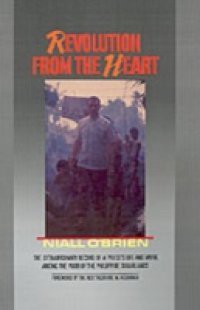In 1983 three priests--among them Irishman Niall O'Brien --together with six lay leaders were arrested in the Philippines on a false charge of murder. The government of Ferdinand Marcos hoped in this way to silence those within the church who were increasingly speaking out against social and political injustice. Instead, the "Negros Nine" became the subject of international protest and a focus of the burgeoning Philippine movement for non-violent change. Released after eighteen months' imprisonment, Father O'Brien returned to Dublin where his prison diary soon became a bestseller. In this new book, he unfolds the larger story of his twenty years as a missionary on the island of Negros in the Philippines. He shows how his encounters with the terrible poverty and ubiquitous injustice he found amid the wealth of the sugar plantations gradually convinced him that the true meaning of Christian discipleship is unconditional commitment to the poor and oppressed. He describes his role in establishing "basic Christian communities," autonomous local groups developed to provide their members with mutual spiritual and practical support, which so alarmed and threatened the military regime. From these beginnings he traces the development, in this land of pervasive brutality and casual murder, of his own theology of absolute nonviolence. Set against a fascinating background of colonial and more recent Philippine history, O'Brien's vivid first-person narrative provides a unique perspective on the events leading up to the overthrow of the Marcos regime. His theology holds out the hope of a "liberation" that can break the continuing cycle of violence and hatred.

